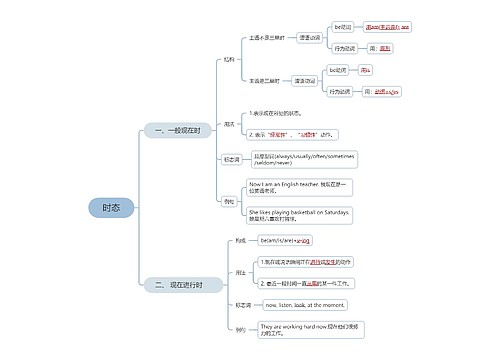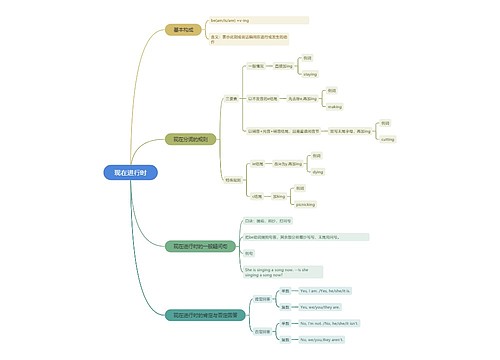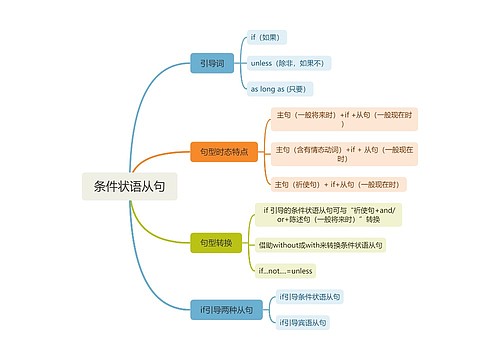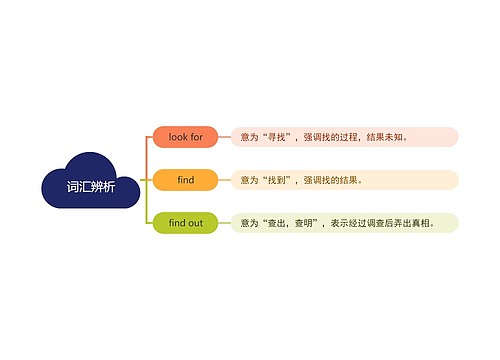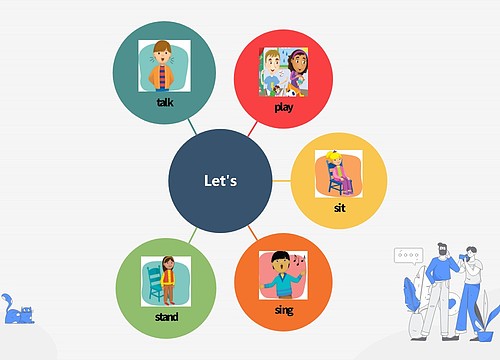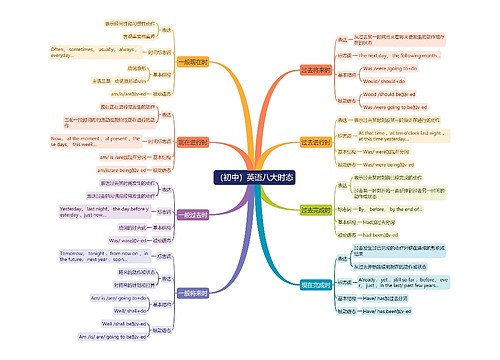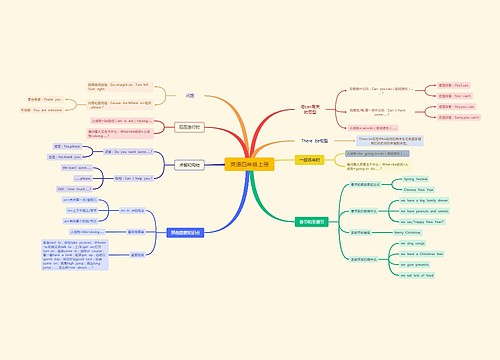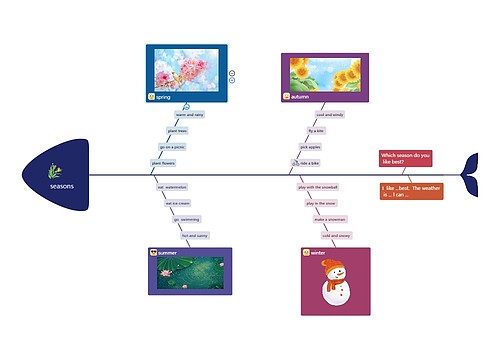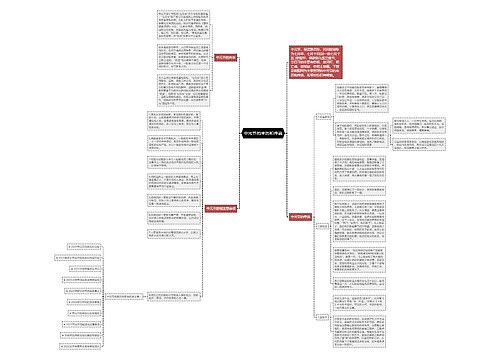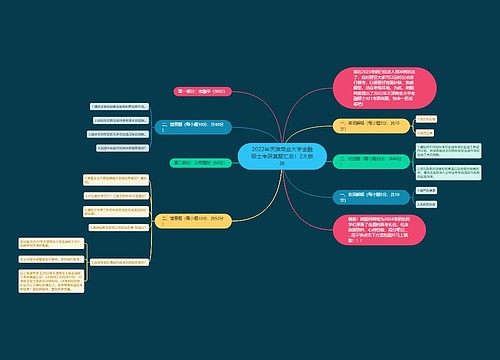
英语五年级上册教案思维导图
女痞
2023-04-04

五年级上册英语教案
英语
五年级
上册
教案
想学好英语,英语教案是非常关键的。好的英语教案不仅要基于教师手中课本教学大纲及教科书,更要从学生的实际情况出发量身定制,方能达到更佳效果。
树图思维导图提供《英语五年级上册教案》在线思维导图免费制作,点击“编辑”按钮,可对《英语五年级上册教案》进行在线思维导图编辑,本思维导图属于思维导图模板主题,文件编号是:2d67cc1b317d2bc6a2cbf161a903eec4
思维导图大纲
相关思维导图模版
英语五年级上册教案思维导图模板大纲
想学好英语,英语教案是非常关键的。好的英语教案不仅要基于教师手中课本教学大纲及教科书,更要从学生的实际情况出发量身定制,方能达到更佳效果。为了方便大家学习借鉴,下面树图网精心准备了英语五年级上册教案内容,欢迎使用学习!
英语五年级上册教案篇1
教学目标
知识目标: 1、能听懂会说What do you do on Saturdays/Sundays ? I often do homework, read books and watch TV. 并能在实际情景中运用。 2、复习所学过的动词词组并运用它们对周末做得事情进行描述。。
能力目标: 1、能听懂会说本单元句型,灵活运用功能句谈论业余活动。 2、学会制作业余活动活页书并运用所学语言描述一周的日常活动。
情感目标: 1、懂得珍惜时间,学会合理安排周末和日常业余生活,身心健康发展。 2、小组之间培养合作意识及竞争意识。 3、学生在积极参与课堂与小组合作学习中获得乐趣,增强学习英语的自信心。
运用目标: 运用本单元的功能句What do you do on Saturdays/Sundays? 进行周末活动调查并制作日常活动图书。
教学重难点
教学重点: What do you do on Saturdays/Sundays ? I often do homework, read books and watch TV. 并能在实际情景中运用。
教学难点: 1、学过的动词短语有所遗忘,练习起来有难度。 2、句子中的连读与爆破及升降调。
教学过程
Step 1 Warm-up and review.
Greetings: T: Hello, boys and girls. How are you today? Ss:--- T:What day is it today? What do you have on ---?Do you like ---? Why ?(Free talk between T and Ss) What day is tomorrow? (Saturday)Do you like Saturdays? What do you often do on Saturdays and Sundays?
Guessing game任意学生自由做动作,让其他同学快速说英语。更好地复习动作及动词短语。 老师出示单词卡再次复习。并讲词卡贴在黑板上,为后面任务完成打基础。(最先说出动词的同学和表演出色的同学有奖励) 动词短语及相关图片如:play football., paint, listen to music ,do homework, read books, watch TV, do sports , play computer games,do housework )
(设计意图:利用游戏,复习曾学过的动词短语,唤醒学生记忆,后面的拓展练习打好基础。及时的激励评价手段调动学生积极性。) In this class, our task is to make our daily activity book. (设计意图:此时提出本节课的教学任务,自制日常活动图书。让学生有准备地去听课。)
Step 2:Lead-in. Let’s chant.(播放19页录音),学生边做动作边吟唱。(设计意图:借助"Chant",更好地对重点句型What do you do on Saturdays/Sundays?进行更好地渗透。) 及时地鼓励和赞美学生如发音动作表情等方面。
Step 3: Presentation&Practice.
1、Let’s try
2、Let’s talk. What does Chen Jie do on Saturdays and Sundays?
Let’s listen to the tape for the first time. How does Sarah ask Chen Jie? How does Chen Jie answer? 找同学说答案,板书并及时纠正不标准的发音。
板书:张贴Sarah 的头像:What do you do on Saturdays?/Sundays? 张贴Chen的头像: I often _____________________________ .
出示词卡play ping-pong 边做动作边教授新词。
Listen again and answer the questions: What does Chen Jie do on Saturdays ? What does Chen Jie do on Sundays? (适当纠正学生第三人称单数的表述。)
Listen again and follow the tape.(注意模仿语音语调)
Practice:Let’s act
Role-play.角色扮演对话练习。(注意表情与动作手势,评选出最佳表演搭档。)
Design a timetable
Group work
Listen and write numbers
Talk and write
Step 4:Consolidation.
Make a survey. 校园小记者小组内调查周末经常做的活动。 教师扮演小记者示范采访同学并作好记录,然后汇报调查结果。
(设计意图:给学生做好示范,让学生更清楚要完成的任务。)
Language structure: What do you do on weekends? I often ---
Activity Name do homework read books watch TV Listen to music paint do sports play computer s ------
Survey report.小记者汇报调查结果。
汇报语言结构如:In Group 1,3 students do homework on Saturdays. 2 watch TV on Sundays.
(采用老师参评、小组内互评方式,评选出最佳小记者,并颁发优秀小记者证) 设计意图:学会评价他人,而非教师搞一言堂。 修改及意图:将小组内的调查结果通过展台展示后再汇报,最后教师汇总全班的调查结果,让学生更加清晰地看到同学们周末经常做什么,以便教师可以总结同学们的周末活动,同时进行情感教育。如对于个别不做作业的行为,整天看电视玩游戏机的行为等等
T:According to the result ,Most students watch TV on the weekend. Some students like to play computers.---(根据同学们的表述对周末最喜欢做的事情进行总结) 如何过一个有意义充实又快乐的周末呢?整天玩电脑,Play computers games all day. No. Watch TV from morning to evening .No. I think doing homework first. Doing more sports. Reading more books, Helping your mom etc are also very useful. Do you agree? (设计意图:对学生进行情感教育,要合理安排周末,不要浪费时间。)
Step 5: Extension.
T: After class, we also have lots of time. What do you often do after class from Monday to Friday?课余时间你经常做的事情是什么呢?This is my daily activity book.
(出示自制的活动活页书并What do I often do on Mondays/---?学生用句型You often---来描述) 此项拓展活动,让学生描述自己的日常生活,充分展示了自己语言的书写和表达能力及绘画能力,讲英语真正地活用于生活中,学生一定会其乐无穷,记忆犹新。)
Step 6 Sum-up and homework.
saying: Time is money but money is not time. So cherish your time and arrange your daily life well.
Homework
1、Finish your own daily activity book and present it to the class.
2、Write a short passage about your weekends.
英语五年级上册教案篇2
教学目标
1、学生能够在图片和教师的帮助下理解对话内容;
2、能够按照正确的意群及语音、语调朗读对话,并能进行角色表演;
3、能够在情景中运用句型What would you like to eat / drink ? I’d like…询问并回答自己想吃什么、喝什么。
4、能够在语境中理解新单词sandwich, drink和thirsty的意思,并能正确发音。
教学重难点
1、能表演所学对话;
2、能够在情景中运用句型What would you like to eat / drink ? I’d like…询问并回答自己想吃什么、喝什么.
教学过程
Step 1 Greetings and Warming up
1、火眼金睛:课件呈现食物和饮料单词,学生快速说出。
3、师生对话,复习上节课句型
T:What would you like to eat ?
S: I’d like …
Step 2 Presentation
1、情景导入
(1.) T:It’s 12 O’clock now. I am hungry((教师做出饥饿的表情).Let’s go to my kitchen. I have a lot of food and drink! What can you seein my kitchen? 教授句型并让学生表达:I am hungry. I’d like ________.
(2.)T:Now I’mthirsty. I’d like some tea. What would you like todrink? (教师做出喝水动作帮助学生理解thirsty和drink)
教授句型并让学生表达:I’m thirsty. I’d like ________.
2、课件展示Sarah一家就餐对话图片
T:Sarah is hungry(教师做出饥饿的表情).What would she like to eat ?
Now , let’s listen tothe tape.
3、Play Let’s try. Students finish the sentence.
填空:She would like some ____ and ____.
4、T:Sarah’s father is hungry and thirsty. What would he like to eat and drink?Now,let’s listen to the tape.
呈现问题让学生带着问题去听和思考:
(1.)What would Sarah’s father like to eat ?
(2.) What would Sarah’s father like to drink?
5、After listen tothe tape ,student discuss the questions in group.
6、Students listenand follow the tape.
7、Students actout the dialogue.
Step 3 Consolidation
1.Role play:让学生仿照Let’s talk重新编写对话,四人一组练习。
2.创设情景:和朋友一起去吃自助餐,用What would you like to eat ?和 What would you like to drink ? 相互询问,表演对话。
Step 4 homework.
Step 5 Board writing
Unit 3 What would you likeA Let’s talk
I’m hungry. I’d like …
I’m thirsty. I’d like some…
What would you like to eat ?
I’d like …
What would you like to drink?
I’d like …
英语五年级上册教案篇3
教学目标
1、能够听说读写本课时四会句子:What do you have
for lunch on Mondays? We have tomatoes,tofu and fish.并使用该句型完成Group work中的问卷调查。
2、能够理解Read and write部分对话的含义并完成句子填空。
3、能够听懂、会唱歌曲"What do you have for lunch?"
教学重难点
能够听说读写本课时四会句子:What do you have for lunch on Mondays? We have… 以及解释句子That
sounds good.
教学过程
Step 1: warm-up
(1) Let’s chant,学生跟唱,复习巩固旧知
What would you like for lunch?
Cabbage, green beens or eggplant?
I’d like eggplant, please.
What would you like for lunch?
Mutton, tofu or beef?
I’ d like mutton, please.
(2)Let’s have a revision: 教师出示单词图片学生快速反应 pork tofu mutton potatoes cabbage tomatoes green beans fish
(3)说说这些菜主要是用什么做成的呢?(用英文单词回答)
Step 2 :Presentation and practice
(1) Lead-in(谈话引入) T: What day is it today? What would you like for lunch?多提问几个学生
(呈现一份school menu.进行多种操练,让学生熟 悉此菜单) Here is a school menu. Let’ s see together. What do you have for lunch on Mondays? (引导学生回答)
(2)Let’s learn T: Look at the school menu.
What do you have for lunch on Mondays? S : Tomatoes, tofu and fish. 教师板书此句型,重点指导四会句子的认读和书写。 (通过师问生答,生问师答,男生问女生答,女生问男生答得方式练习) T: Look at the school menu. What do you have for lunch on Tuesdays? S: We have…… (引导学生用不同的食物单词替换,操练句型) T: I have many words, Who can use these words make new sentence? What you for Amy like dinner would ? 让学生排序
(3) Practice
安排学生一竖排进行互问互答 What would you like for dinner? I’d like …… (4) Listen, read and finish the sentences.
a. listen to the tape(引出课文对话,带问题听录音)
b. Read the dialogue(快速默读,画出难理解的句子)
c.Listen and read after the tape
听录音回答问题Let’s listen to the tape. ☆
What would you like for dinner, Amy?
d. Filling the blanks.
1.Amy has _______ ,______and ______ for lunch on Mondays.
2. Amy is hungry . She’d like ____and _________ for dinner.
e.分角色读
Step: 3 Consolidation
Group work:Let’s make(不同类型学生分头进行小组活动.让学生根据一日三餐的话题,进行小组交流并制作一张菜单,根据自己制作的菜单做对话)
Group work(小组合作):
Make a new menu using the foods you have got, and show it .(用所学的食物单词制作一个新菜单,并用来造对话展示。)
S1:What do you have for lunch on Mondays?
S2:I have …… S1:What do you have for lunch on Tuesdays? S2: I have …… What about you? S1: I have …… 学生练习完对话后教师适时加以表扬,并借助手势和表情自然引出句子:That sounds good.
Step 4 :Homework:
(1)熟读课文。
(2)回家后,仿造课文设计制作一段对话进行表演
(3)运用所写知识,在班级内对一周午餐进行调查,完成调查表。
英语五年级上册教案篇4
教学目标
1. 能听、说、认读单词"learn","any","problem"和词组"no problem"。
2. 能听懂、会说句子"Can I …?"进行问答练习。
3. 能完成"Let’s try"部分的听力任务。
4. 提高学生自主学习、主动学习的意识和与他人进行沟通、交流的能力,让学生感受到合作学习的乐趣和效率。
教学重难点
1. 能听、说、认读单词"learn","any","problem"和词组"no problem"。
2. 能听懂、会说句子"Can I …?"进行问答练习。
教学难点
词组"no problem"的使用。
教学过程
一、课前热身(Warm-up)
1. Free talk
T: Good morning, everyone. Nice to meet you.
Ss: Good morning, teacher. Nice to see you, too.
T: How are you today?
Ss: Very well, thanks.
T: What can you do, S1?
S1: I can …
T: Can you …?
S2: Yes, I can. / No, I can’t.
2. 教师播放Let’s chant的录音,全班学生跟着录音吟唱并做动作。
Dog, dog, can you run?
Yes, I can . Yes, I can .
Panda, panda, can you swim?
No, I can’t. No, I can’t.
Sarah, Sarah, can you dance?
Yes, I can . Yes, I can .
Mike, Mike, can you cook?
No, I can’t. No, I can’t.
二、课前预习(Preview)
1. 教师表演,学生说出相应的单词或词组,复习上节课学习的词汇。
2. 全班学生站起来,教师用句型"I can …"说句子,学生做相应的动作,做错动作或反应迟缓的学生坐下来,几轮游戏后,最后剩下的学生为获胜者,教师给予奖励。
三、新课呈现(Presentation)
B. Let’s talk
1. 教学新单词
(1) 教师出示学生上体育课的情景图,师生进行对话,如:
T: What class do they have?
Ss: They have PE class.
T: What do you learn in PE class?
Ss: …
T: Can you do any kung fu?
Ss: Yes, I can. / No, I can’t.
T: (对着作否定回答的学生说) No problem. The PE teacher can help you.
(2) 学习操练"no problem":教师把生词写在黑板上,带领学生读几遍。
2. 介绍对话情景
T: John’s class are having PE class now. The PE teacher is talking with the children. Let’s listen to the tape and know something about their talking.
3. 第一次播放教学录音,全班学生跟着录音读,提醒学生在跟读的过程中注意模仿录音中的语音、语调。
第二次播放教学录音,
听录音,将课文内容补充完整:
根据对话内容判断下面句子正(T)误(F)。
① The children have PE class in the afternoon.
② John can’t do any kung fu.
③ Oliver can’t do any kung fu.
Answer:
① T
② FX
③ T
第三次播放教学录音,全班学生跟着录音读,提醒学生在跟读的过程中要注意模仿录音中的语音、语调。
4. 学生拿出人物头饰,同桌合作练习表演对话,然后教师请几对学生上讲台表演,评选出"最佳表演者",并给予小礼物作为奖励。
5.Group work,自由操练句型。
四、巩固延伸(Consolidation & Extension)
Homework
1.背诵PartA let's talk 部分内容。
2.做相关练习。
英语五年级上册教案篇5
教学目标
1. 能听、说、读、写单词"sing English song","play the pipa ","do kang fu ","dance"和"draw cartoons"。
2. 能在创设的实际情景中灵活运用句型"What can you do ?" "I can …?",激发学生进一步了解他人的欲望。
3. 能完成"Ask and answer"部分的对话任务。
4. 培养学生自主学习、合作学习的意思和能力,帮助学生树立学好英语的自信心。
教学重难点
1. 利用教材提供的对话情景,以旧引新,引导学生进入学习状态。
2. 能运用句型询问。
教学过程
Step1lead-in
Morning children.
Today there are many teachers coming to our school. Let’s say good morning to them. More than that, to show ourwelcome, what can you do if we’ll have an welcome partyfor the teachers?
What can you do for the party? I have an idea. Let’s sing songs, ok?
Can you sing English songs? ABC song. Yes, I can…板书 引导语气自信
Wonderful. She can sing English songs. How about you? Canyou sing songs? Wonderful…后面可以让学生自己问自己称赞。
Let’s sing an English songs for the teacherstogether.(music)
Step2Presentation
You can sing songs for the party. That is wonderful. Whatelse can you do?
出示单词图片 听录音说单词 dance do kungfu play the pipa/erhu/guzheng…
Draw pictures play chess cook clean the room…
教授单词短语,学生上台表演, 轮流问答
引导学生问到老师 what can you do? .
let’s chant
What can you do for the party? I can dance.
What can you do for the party? I can do kung fu.
What can you do for the party? I can draw cartoons.
What can you do for the party? I can play the pipa.
let’s say and do
Step3Finishthetext
Next Tuesday, they’llhave an English party.
Look at the picture and guess. What can they do for theparty?
Listen to the audio and answer the questions.
What are they talking about? What can john do? Whatcan Zhang Peng do?
Silent read and underline the answers above.
Read in roles.
Sample made by T and S
What can you do for his birthday party?
Step4Communication
1 a crying baby 2 helping the old grandma
英语五年级上册教案篇6
教学目标
1、知识目标: (1)能听、说、读、写四会句型。 (2)能听、说、认读 Part A Read and write 的内容。 2、能力目标: 掌握there be 句型的用法,能用There be 的句型简单描述房间物品的名称、特征。 3、情感目标: 通过深挖教材,让学生认识到要保持房间的整洁,并延伸到要保持教室、学校的清洁、整齐,并能在实际生活中去做到。 4、学习策略:注意观察、比较,积极与他人合作,共同完成学习任务。
教学重难点
1、让学生熟练掌握There be 句型的表达法。 2、掌握四会句型。
教学过程
Step1: Warm up
1、Let’s do.
(设计意图:通过边唱边做富有节奏的Let’s do导入新课教学,活跃课堂气氛,复习房间单词。)
2. Step by step. What’s your room like? 学生说一说。
(设计意图:把上课中出现的单词融入句型教学中,大量输入,做到词不离句,句不离篇,有助于学生对所学内容的理解,并能真实地感受到语言的交际功能。另外,台阶象征登攀,复习单词,以此形式复习单词,句型为让学生产生奋发向上的心理体验。)
Step2: Pre-reading(阅读前)
1、排障flat 教师利用课件帮助学生理解flat. 区别flat和house.(课件出示flat 的图片)排障教读单词。
(设计意图:利用直观的图片帮助学生区别flat和house,并教学flat的发音。)
2、排障third T:(指house图片)This is the first floor, this is the second floor and this is the third floor.出示third教读单词。
3、排障房间单词。
利用课件猜谜,复习四年级所学房间类单词,并对上节课所学There be句型进行练习,为本节课重点学习打下基础。
(设计意图:利用课件帮助学生理解the first floor, the second floor and the third floor.并复习房间类单词,为下面的新知学习做好铺垫。)
Step3: In-reading(阅读中)
1、Listen and answer. 看视频,整体感知,回答问题。How many rooms are there in the flat? What are they?
( 设计意图:借助课文的视频短片,让学生初步的整体感知课文内容。调动学生的视觉和听觉,吸引学生的注意力,同时让学生带着问题有针对性地观看视频,旨在培养学生边听边思考的习惯,培养其听说能力。)
2、学习课文第一部分。A new flat.
(1)课件呈现课文第一部分,跟录音读。理解。
(2)根据提示复述课文。
(3)根据所学描述My sister’s room .
( 设计意图:分段教学,降低学习难度。根据所学填空复述,联系实际说一说等形式,分层练习巩固。)
3、学习课文第二部分。The baby rabbit’s room.
(1)由Chinese cabbage 引入。
( 设计意图:利用Chinese cabbage变bed,引起学生的学习兴趣,进入第二部分的学习。)
(2)多种方法读第二部分,理解。 (设计意图:通过多种方法,读课文,达到对课文的熟读理解。)
(3)Pair work. 配对活动,同桌两人自由读课文,完成Tick or cross. Learning tip. 同桌合作,阅读前,先读懂题目,再带着问题去仔细阅读。阅读时,抓住你想要的关键句子或词语。
4、Read and write. 小组活动。领读课文,达到会读熟读的目的。Learning tip. 小组合作,先读课文,然后根据问题在文中划出关键的句子或词语,每题都能在文中找到相应的证据。 Finish the sentences. a、There are two ________, a _______, a ________, and a _________ in the rabbits’ new flat. b、What’s in the rabbits’ room? There is a _____, a ___ and a _____in his room. And there are two _________.
(设计意图:通过读与练达到对课文内容更深的理解,并增强了学生的合作意识。)
5、学习There be 句型的表达法。渗透There be 句型的就近原则。
(设计意图:通过举例、讲解让学生更好地掌握There be句型通过有关的练习,进一步巩固和加深本节课的教学难点。)
6、根据课件出示baby rabbit’s room来复述课文。
( 设计意图:在学生读课文,理解课文以后,让学生根据提示进行课文复述,这样可以使学生对课文有更深刻的理解,还可以增强学生的说的能力。)
Step 4: Post-reading(阅读后)
1、Read and choose: Which is my flat? 两个房间,通过文字介绍选择正确的房间。 (设计意图:通过短文的阅读,扩展本课所学,在理解的基础上,学生做出选择。)
2、Let’s play . Do you like games? Let’s play a game. Listen to the music, pass the box. Chose and say. First, please read these works.
3、PAIR WORK
A: What’s in your room …?
B: There is /are….
4、Write a composition:
(设计意图:在听鼓声传纸盒的活动中,谁来回答问题具有不可预见性,因而这个活动富有趣味性和挑战性,学生非常喜欢。在这个活动中,要求学生看图片说一说,要用对There is /are,对There be句型是一个有意义的句型操练,很好的巩固了课文重点句型。)
5、介绍自己的房间.同桌合作,先根据自己房间的摆设,互相说一说。
(设计意图:看图选一选,说一说,根据实际情况,由图片向语言表达的转变,让学生的学习与自身生活紧密相连,让学习达到一次升华。)
6、情感教育:Keep our room tidy and clean. Keep our classroom/school tidy and clean too.
No pain, no gain. (没有付出,就没有收获。)
(设计意图:对学生进行情感教育,教育学生保持房间整洁,也要注意教室、学校的卫生保持。)
Step 5: Homework
写一写:My room,描述自己的房间,不少于30个单词,并向伙伴们介绍一下自己的房间。
(设计意图:课下巩固提升。让学生把说转变为写的过程,给学生更多的思考、整理的空间。)
六、板书设计: Unit 5 My New Room
A new flat. There are… The baby rabbit’s room. There is… There are… There is…
英语五年级上册教案篇7
教学目标
1. 能够听、说、读、写单词:in, on, under, behind, near。
2. 能听、说、认读:over, in front of 和句子Where is the …? It’s …并能在情境中正确运用。
3. 能感受到集体合作的重要性。
教学重难点
本课时的教学重点:
使学生熟练掌握七个方位介词的用法。
本课时的教学难点:
In front of 的掌握。
教学过程
Warm-up
师生互相问候。
教师和一些学生互动。
教师在屏幕上出示A部分所学物品的图片,请一些学生说出相应的英文单词。在此过程中,教师可以说一些带有方位介词的句子,让学生提前感知学习内容。
Presentation
Let’s learn
1. 教师拿出一个盒子,说:"What’s in mybox?Let me see."教师把手伸入盒内,说:"There’s a mouse in my box! Look!"
在屏幕上出示老鼠在盒子里的图片,同时带领学生一起念问题:"Where is the mouse?" 回答"It’s in the box."
请若干名学生读单词。
2. 教师继续出示各个表示不同方位的老鼠图片,带领学生学习完所有的方位介词。
3. 教师再次呈现over和on的图片,让学生对比,加深印象。
总体呈现一次所有图片,学生据图说单词,就学生掌握不足的单词再加强操练。
Playagame
1.教师讲解游戏规则:每组派出一名学生上前,蒙住眼睛。教师出示一张单词卡片,示意开始。该组学生念出单词,其他组学生代表干扰。看被蒙眼的学生能否知道词卡上是何单词,并用道具正确地摆放出来。
2.每小组轮流选人上前进行游戏。
3. 汇总游戏结果。
教师在屏幕上出示若干张表示方位的图片,和学生一起问答。
1. 教师出示书本上的图片,给学生发放写有样例的作业纸,让学生根据图片和例子自己写一些句子,组成一篇小作文。
2.请数名学生汇报自己的作文成果。
Homework
1. 抄写本课单词。
2.说说你房中物品的位置。
查看更多
相似思维导图模版
首页
我的文件
我的团队
个人中心

